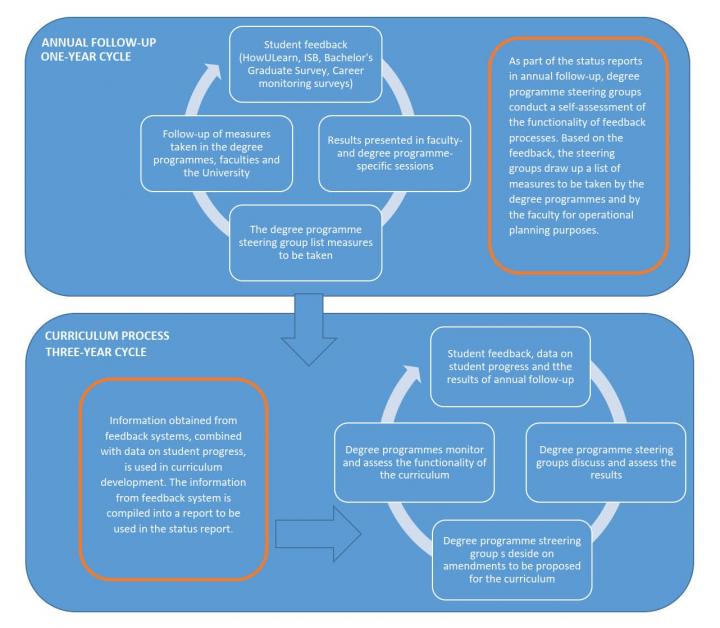HowULearn questionnaires
HowULearn questionnaires are included in both bachelor’s and master’s level studies for all students who started their studies on 1 August 2017 or later. The questionnaires contain statements based on university pedagogical theory and research. HowULearn provides students with information and feedback to support their learning. Degree programmes can make use of the results of the questionnaire as they plan and develop their teaching. Read more about HowULearn surveys in Flamma.
HowULearn questionnaires are available through the UniHow system. UniHow is a research-based learning and teaching support system used by the University of Helsinki.
International Student Barometer (ISB)
The International Student Barometer is a survey targeted at international students, sent to all international students (bachelors, master’s and doctoral) of the University of Helsinki, including both degree and exchange students. The survey comprehensively charts the learning experience of international students. The survey is carried out by I-graduate, an international benchmarking and research organisation specialised in education. The survey enables the international comparison of international students’ experiences.
Read more in the Instructions for Students on the webpage The International Student Barometer (ISB).
Course feedback system Norppa
Course feedback system Norppa is used at the University of Helsinki. By default course feedback form is automatically created with six fixed University level questions for selected course types. Additional questions can be added by the study program and/or teacher. Read more about Norppa in wiki.
The Centre for University Teaching and Learning is developing an interactive research-based tool for development measures taken during courses known as HowUStudy.
